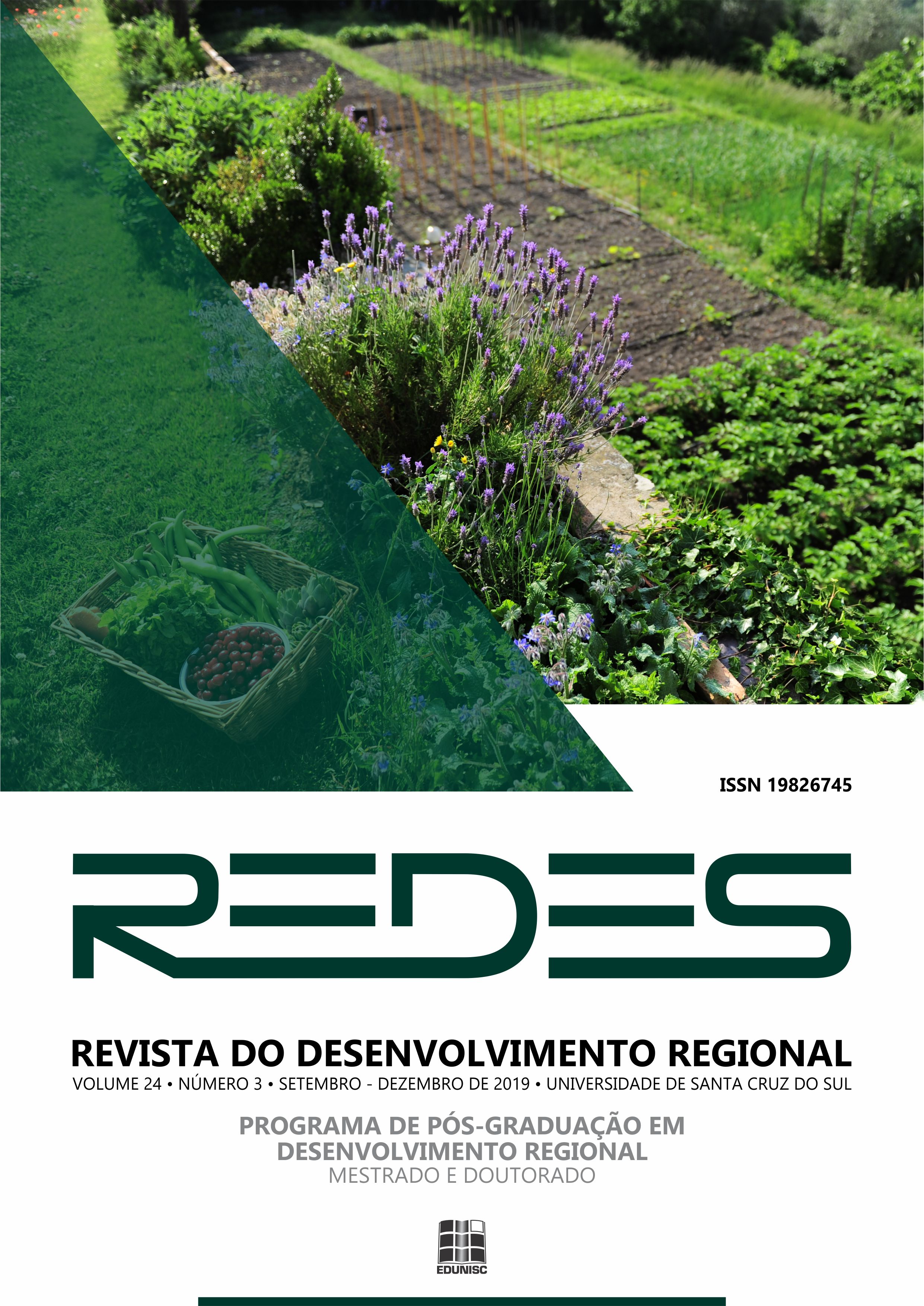What ist regional development? An approach since the brazilian sociocultural reality
DOI:
https://doi.org/10.17058/redes.v24i3.13670Keywords:
Brazil. Regional Development. Field of knowledge.Abstract
This article focuses on regional development issues. The main purpose is to offer a somewhat more contextualized understanding of what regional development might be. Thus, within the limites of a brief and objective article, the context within which a more precise notion of regional development can be formulated will be sought. The concern is not with the elaboration of an abstract concept; it is with the frame of a picture that has gained sharpness in Brazilian graduate studies in the last three decades, in which an understanding of regional development that corresponds to the Brazilian sociocultural reality can be formulated. In order to contribute to the construction of the aforementioned framework, in which a more precise understanding of regional development can be advanced, Brazil is defined as the privileged locus of this attempt, and its sociocultural characteristics (such as language, educational institutions etc.) as immovable references. Finally, the article suggests that the requirements for the recognition of regional development as an autonomous field of knowledge are met.Downloads
Download data is not yet available.
Downloads
Published
2019-09-03
Issue
Section
Articles
License
The submission of originals to this journal implies the grant, by the authors, of the printed and digital publication rights. Authors retain copyright and grant the journal right of first publication. Authors may only use the same results in other publications clearly indicating this journal as the medium of the original publication. Because we are an open access journal, we allow free use of the articles in educational and scientific applications provided the source is cited under the Creative Commons (CC-BY) license.How to Cite
Theis, I. M. (2019). What ist regional development? An approach since the brazilian sociocultural reality. Redes , 24(3), 334-360. https://doi.org/10.17058/redes.v24i3.13670



